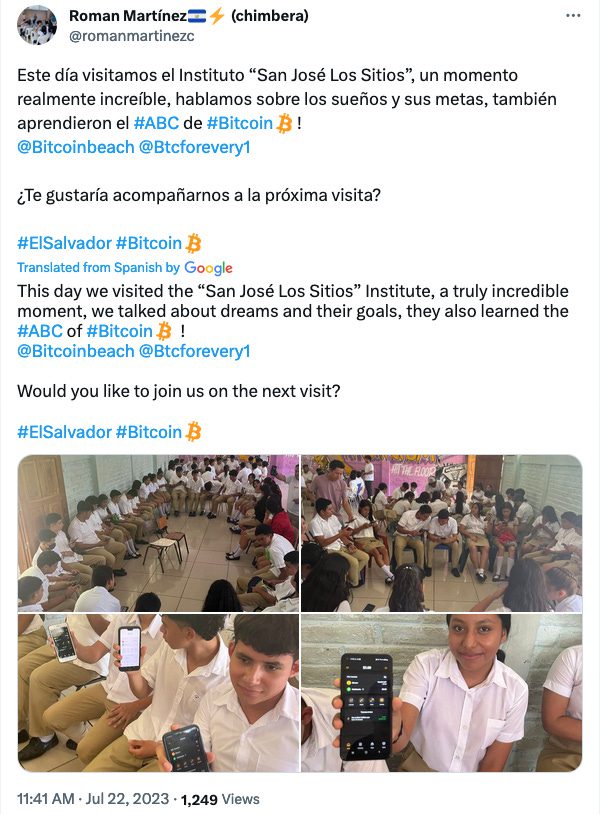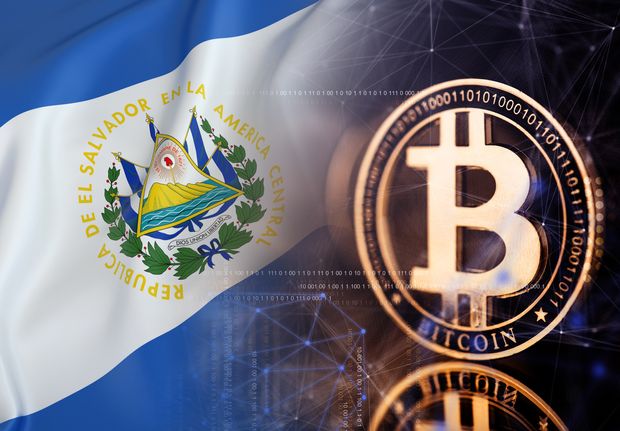More than 25,000 students in El Salvador have been introduced to Bitcoin in their classrooms.
The monetary and financial system is fundamentally flawed and unfixable.
I’ve explained this to you before, and you’ve grasped it as well.
Once you comprehend this, you’ll ask yourself: why do so few individuals acknowledge the shortcomings of the present system?
Here lies the confusion for many Bitcoin enthusiasts who struggle to find the correct answer. To me, the answer is clear: the current education system is complicit with the existing monetary and financial structure.
Every effort is made to prevent you from recognizing the flaws in the current system. Henry Ford accurately identified this issue over a century ago:
“It is well enough that people of the nation do not understand our banking and monetary system, for if they did, I believe there would be a revolution before tomorrow morning.”
The revolution that Henry Ford mentioned finds its embodiment in Bitcoin, an energy-based currency that Ford himself envisaged in his time:
“100 Years Ago, Henry Ford Already Theorized an Energy-Based Currency Like Bitcoin”
For the Bitcoin revolution to triumph, we must address the education system’s core issue. It is imperative to educate people about the nature of money and, more importantly, the mechanics of an honest monetary system like Bitcoin.
In 2023, which country other than El Salvador could undertake this task?
El Salvador adopted Bitcoin as legal tender in September 2021. Despite IMF and World Bank threats, along with pressure from Western nations, President Bukele stood firm, and the predicted catastrophe never transpired.
El Salvador is not only managing well but also looking towards a brighter future.
To ensure the entire country benefits from the Bitcoin revolution, an initiative has been launched to educate 12-year-old students across the nation about what Bitcoin is and how to utilize it.
Cointelegraph recently unveiled this news, and it’s quite promising.
Leading this endeavor is Roman Martinez, the Bitcoin Beach community leader in El Salvador. Martinez believes that equipping young people with knowledge about Bitcoin, money, and economics is essential to providing them with a better future:
“Every Friday we visit schools for Bitcoin education where we talk about money and dreams, we teach them to set up a Bitcoin wallet, we help them receive their first satoshi and make transactions.”

Initially, many of these young students found Bitcoin complex. However, gradually, they have embraced this technology that empowers them with the results of their labor, free from the threat of censorship.
Martinez further elaborates that, beyond Bitcoin, the curriculum also covers money and banking system workings to address gaps in the current educational setup:
No one teaches you about money. We do transactions every day, we work for money, and we save money, but no one teaches us about it. If you want to make a change, people and families need to learn about money.
According to Martinez, imparting Bitcoin-related knowledge to these youngsters will give them a distinct advantage in their upcoming lives:
“If they know English, have computer skills, know about Bitcoin, and know about marketing, they can work remotely for anyone around the world. This is a big door that is open now for everyone.”
Similar initiatives are already taking shape in El Salvador, positioning the country as a testing ground for mass Bitcoin adoption in the future.
With over 70% of Salvadorans currently unbanked, Bitcoin offers essential financial services to all. For President Nayib Bukele, achieving widespread financial inclusion in El Salvador was a pivotal goal in the shift toward adopting Bitcoin as legal tender.
As in all matters of life, it’s through substantial investment in education that we can shape a better future for millions worldwide. This motivation compelled me to write about Bitcoin in late 2016. In my own humble way, I endeavor to contribute by enabling everyone to form their own perspectives on Bitcoin.


